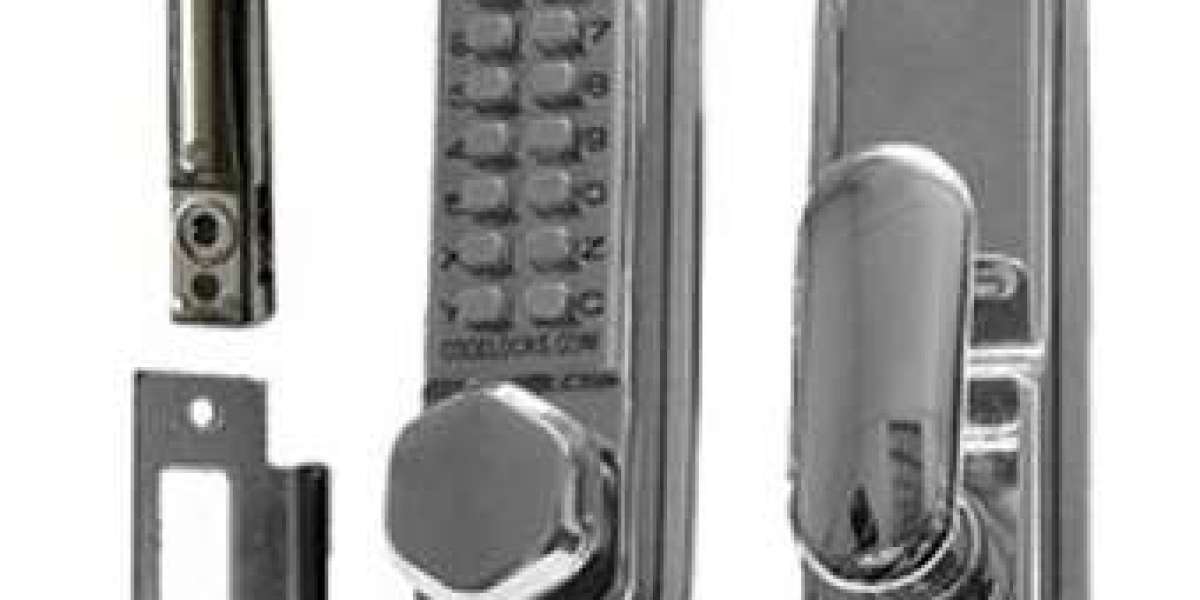When it comes to home and office security, door knobs and door locks are essential components that often go unnoticed until a problem arises. These hardware pieces not only provide security but also add to the aesthetic appeal of your space. This guide will explore the various types of door knobs and door locks, their benefits, and tips on selecting the right ones for your needs.
Types of Door Knobs
Door knobs come in various styles and functions, each serving a specific purpose. Here are the most common types:
Passage Door Knobs:
Function: These knobs do not have a locking mechanism and are typically used for interior doors like hallways or closets where privacy is not a concern.
Ideal For: Hallways, closets, and rooms where locking is not required.
Privacy Door Knobs:
Function: Equipped with a locking mechanism, these knobs are used for rooms that require privacy, such as bathrooms and bedrooms. They can be locked from the inside with a push or turn button.
Ideal For: Bedrooms, bathrooms, and other private spaces.
Dummy Door Knobs:
Function: These are non-functional knobs used for decorative purposes or to pull doors open. They do not turn or have a locking mechanism.
Ideal For: Closets, cabinets, and other doors where latching is not necessary.
Keyed Entry Door Knobs:
Function: These knobs have a keyed lock on the outside and a turn button on the inside, providing security for exterior doors.
Ideal For: Front doors, back doors, and other exterior entry points.
Types of Door Locks
Door locks are crucial for securing your property. Here are some of the most common types:
Deadbolt Locks:
Function: Deadbolts are one of the most secure locking mechanisms. They are available as single-cylinder (keyed on one side) or double-cylinder (keyed on both sides) locks.
Ideal For: Exterior doors that require a high level of security.
Knob Locks:
Function: These are integrated into door knobs and are typically used in conjunction with a deadbolt for added security.
Ideal For: Secondary locks on exterior doors and interior doors requiring privacy.
Lever Handle Locks:
Function: Lever handle locks are often used for interior doors and can be locked from the inside. They are easier to operate than knobs, making them suitable for accessibility needs.
Ideal For: Interior doors, particularly where ease of use is important.
Electronic and Smart Locks:
Function: These locks can be operated using a keypad, smartphone, or biometric data. They offer advanced security features and convenience.
Ideal For: Modern homes and offices, providing keyless entry and remote access.
Mortise Locks:
Function: Mortise locks are installed into a pocket cut into the door edge. They are known for their strength and durability.
Ideal For: Heavy-duty applications, including commercial buildings and high-security residential doors.
Choosing the Right Door Knobs and Locks
Selecting the right door knobs and locks involves considering several factors:
Security Needs: For exterior doors, prioritize security with deadbolts and keyed entry knobs. For interior doors, privacy knobs and lever handle locks may suffice.
Style and Finish: Door knobs and locks come in various styles and finishes, from traditional to modern. Choose hardware that complements your decor and enhances the overall aesthetic of your space.
Ease of Use: Consider the usability of the hardware. Lever handles are easier to operate than knobs, making them a better choice for those with mobility issues.
Durability: Ensure the hardware is made from high-quality materials. For high-traffic areas, opt for durable finishes like brass, stainless steel, or bronze.
Compatibility: Make sure the door knobs and locks are compatible with your doors in terms of size, thickness, and type of door (interior or exterior).
Installation and Maintenance Tips
Professional Installation: For maximum security, especially for exterior doors, consider hiring a professional to install your door locks and deadbolts.
Regular Maintenance: Keep your door knobs and locks in good condition by regularly cleaning and lubricating them. Check for any signs of wear and tear and replace them as needed.
Upgrade When Necessary: If your current door locks are outdated or damaged, upgrade to newer models with enhanced security features.
Conclusion
Door knobs and door locks are essential components of any building, providing both security and style. By understanding the different types and selecting the right hardware for your needs, you can enhance the safety and aesthetic appeal of your home or office. Whether you prefer traditional keyed locks or modern electronic systems, investing in high-quality door hardware is a step towards ensuring peace of mind and protection for your property.







